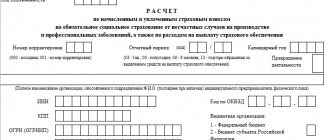POSSIBLE TAX SYSTEMS
Currently, the following taxation systems and taxes are in effect in the Russian Federation:
Classical (ordinary) taxation system. Unified agricultural tax. Simplified taxation system (with the object of taxation: only Income or Income minus Expenses. Taxation system when implementing production sharing agreements. The “+” sign means that this tax is paid by default. The “- +” sign means that this tax is paid by default is paid if the basis for its calculation arises. The sign “-” means that by default this tax is not paid. The sign “+Z” means that this tax is paid by default, but can be offset against the payment of the main tax on this taxation system The "-" sign means that by default this tax is not paid, but the taxpayer may have cases where he not only charges and pays this tax, but also reports on it. "Green" means that this tax may be canceled by decision of regional\local authorities.
From the above table it is clear that the use of any taxation system does not mean a complete ban on the application of taxation(s) from another system. For example:
- An organization may have KSNO + UTII (or, for example, a trading fee).
- If an organization has issued an invoice using the simplified tax system, highlighting VAT, then it will be obliged not only to pay it, but also to submit a tax return for VAT.
- And so on.
Before deciding what kind of taxation system legal entities can apply, it is necessary to determine the activities (types of agreements, contracts) that lawyers working in legal entities and the legal entities themselves can conclude.
Taxation and tax reporting of a law office, board, legal consultation
An NPO must have an independent balance sheet or budget. Art. 26 of Law No. 7-FZ establishes that the property of an NPO is formed on the basis of proceeds from its participants.
In accordance with paragraph 11 of Art. 22, paragraph 2, art. 23 of Law No. 63-FZ, property contributed by lawyers becomes the property of the NPO. This does not apply to legal advice, the founder of which is the regional chamber (Article 24 of Law No. 63-FZ). The procedure for paying contributions for the maintenance of the organization is determined by the charter, and their amount is determined by the decision of the meeting of lawyers.
According to Art. 32 of Law No. 7-FZ NPOs have responsibilities for maintaining accounting and submitting statistical and tax reporting in the general manner. At the same time, accounting for one’s own income and accounting for the income and expenses of lawyers who are participants in the education are carried out separately.
Important! Based on the impossibility of applying the simplified tax system and other special regimes, non-profit organizations are taxpayers under the general taxation system (see the article “Taxation under OSNO - types of taxes”). The income of participants is not the income of the organization; taxes and contributions are withheld and paid from them.
VAT:
Article 149 of the Tax Code of the Russian Federation. Transactions not subject to taxation (exempt from taxation) Clause 3. The following operations are not subject to taxation (exempt from taxation) on the territory of the Russian Federation: 14) provision of services by bar associations, law bureaus, bar chambers of constituent entities of the Russian Federation or the Federal Chamber of Lawyers to their members in connection with their professional activities. This means that all income related to the professional activities of lawyers (provision of legal services) is not subject to VAT. But this does not mean that bar associations can never have a VAT base. It can occur in a large number of cases. For example, when renting out premises belonging to a bar association. The standard rate for most other law firm transactions will be 18%.
Contributions when working as a lawyer in an association
If a lawyer works in an association (collegium, bureau, consultation), then it is this association that is the tax agent. Contributions in such a situation have the following characteristics:
- fees established by law in the form of a fixed amount are paid by the lawyer himself;
- for the income (remunerations) that the lawyer received while performing work within the association, the organization pays the lawyer’s fee itself by the 15th of the next month;
- When making payments, law firms are required to provide reports on insurance premiums (accrued and paid); if there were none, zero reporting.
What taxes do law firms, offices, colleges and legal consultations pay?
Note!
The Law “On Advocacy and the Bar in the Russian Federation” No. 63-FZ (hereinafter referred to as Law No. 63-FZ) provides for the implementation of advocacy in the forms of a law office, collegium, legal consultation, which are legal entities (Article 123.16-2 of the Civil Code of the Russian Federation), and also individually - in the form of a lawyer’s office (Article 21 of Law No. 63-FZ). Wherein:
- Taxation of law offices is carried out in accordance with the requirements for the self-employed population (individual entrepreneurs (IEs), notaries and other private practitioners), with some features that will be discussed below.
- Legal entities that are legal entities act as tax agents for lawyers operating within the framework of the relevant organization. The lawyers themselves act as taxpayers. Legal entities have an independent status as taxpayers, being, according to civil law, legal entities - non-profit organizations (NPOs), and are registered as such by the Ministry of Justice of the Russian Federation and the Federal Tax Service of the Russian Federation, and have special legal capacity (for details, see the article “Features of the legal capacity of non-profit organizations”). The activities of NPOs are also regulated by the Law “On NPOs” No. 7-FZ (hereinafter referred to as Law No. 7-FZ).
Important! In the event of a change in government policy (see the article “Concept for regulating the market for professional legal assistance”, hereinafter referred to as the Concept), taxation will be changed, this is directly stated in the Concept.
Corporate income tax:
Article 251 of the Tax Code of the Russian Federation. Income not taken into account when determining the tax base Targeted revenues for the maintenance of non-profit organizations and the conduct of their statutory activities include: contributions from the bar chambers of the constituent entities of the Russian Federation for the general needs of the Federal Chamber of Lawyers in the amount and manner determined by the All-Russian Congress of Lawyers; deductions from lawyers for the general needs of the bar association of the relevant subject of the Russian Federation in the amounts and in the manner determined by the annual meeting (conference) of lawyers of the bar association of that subject of the Russian Federation, as well as for the maintenance of the corresponding lawyer office, bar association or law bureau. This means that all income related to contributions (targeted contributions) from lawyers is not subject to income tax. And this again does not mean that legal entities can never have taxable revenue (income). It can occur in a large number of cases. For example, when receiving income from placing free funds. The standard rate for most other law firm transactions will be 20%.




